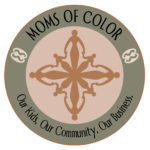
In the tapestry of motherhood, African American women have woven threads of resilience, strength, and unwavering love. Their journeys, often marked by unique challenges, are a testament to their indomitable spirit. This article celebrates the inspiring stories of African American mothers who have turned obstacles into opportunities, highlighting their extraordinary journeys.
The Power of Resilience in Overcoming Challenges African American mothers have historically faced and overcome numerous challenges. From societal pressures to personal struggles, their resilience in the face of adversity is nothing short of remarkable. Here, we share stories of mothers who have surmounted obstacles to provide the best for their children and communities.
Balancing Act: Career and Motherhood Many African American mothers have shattered glass ceilings while nurturing their families. We delve into the lives of trailblazing mothers who have excelled in their careers while maintaining a harmonious family life, serving as role models for the next generation.
Cultivating Cultural Pride and Heritage Instilling a sense of cultural pride and heritage in children is a significant aspect of motherhood. This section explores how African American mothers are passing down rich traditions and values to their children, ensuring a lasting legacy.
Wellness and Self-Care: A Priority for Mothers The health and well-being of a mother are crucial for the family’s overall happiness. We bring to light how African American mothers prioritize their health and well-being, emphasizing the importance of self-care in their busy lives.
Building Strong, Supportive Communities African American mothers often serve as pillars of their communities. Here, we highlight how they foster support systems and networks that uplift entire neighborhoods, creating a ripple effect of positive change.
Conclusion The stories of African American mothers are filled with courage, love, and wisdom. Their empowering journeys remind us of the incredible impact mothers have on their families and society. As we celebrate these remarkable women, we recognize the beauty and strength inherent in every aspect of African American motherhood.
Here are some empowering stories of African American mothers, showcasing their resilience and strength:
- Mary Wilmer – A single mother who faced years of tears, stress, and even depression. Mary’s journey is a powerful reminder to single mothers never to let anyone tell them they can’t achieve their goals.
- Dacorsha Sutton – Once a teen mom at 16, Dacorsha pursued not only her high school graduation but also a college degree. She is an inspiration, showing that it’s never too late to overcome past mistakes and strive for success.
- Kirra Martin – Kirra faced the challenge of attending college classes while in her third trimester. Her experience highlights the physical and emotional hurdles that mothers in academia can overcome.
- Khadejah Stegall – Khadejah’s life took an unexpected turn with her pregnancy. Despite the adversity, she interviewed Former President Barack Obama on national TV, showcasing her ability to balance professional achievement and parenthood.
- Toi Nicol Parks – A survivor of domestic violence, Toi persevered through illness and surgeries while pursuing her academic goals. Her graduation alongside her son Javari Parks is a testament to her resilience.
- Kaiara Massey – With her mother incarcerated and missing out on her son’s life, Kaiara pursued college to achieve something greater. She wanted her son to grow up proud of his heritage, with her graduation being a significant milestone.
- Maya Angelou: Before becoming a renowned poet and author, Maya Angelou faced the challenge of being a single mother at 17. She worked multiple jobs to support her family and never gave up on her dream to write poetry. Angelou’s journey from a cable car conductor to an award-winning writer, musician, actress, and civil rights activist is a story of resilience and determination.
- Dr. Mayme Clayton: Dedicated to preserving black history, Dr. Clayton amassed a significant collection of black literature, documents, and memorabilia. She was a librarian, collector, and historian, balancing these roles with being a wife and mother to three sons. Her extensive collection became a treasured resource for scholars and communities, housed in the Mayme A. Clayton Library & Museum.
- Ruby Dee: An award-winning actress and activist, Ruby Dee, alongside her husband Ossie Davis, was deeply involved in the Civil Rights Movement. She balanced her professional career with motherhood, raising their son Guy and later collaborating with him in the family musical “Take It from the Top!”.
- Nina Simone: Renowned for her versatile singing talent, Nina Simone began her career performing in various genres. She was also an active participant in the Civil Rights Movement. Simone, a mother to a talented singer, Lisa Simone Kelly, used her platform to voice social issues through music.
- Katherine Johnson: A pioneering mathematician and NASA scientist, Katherine Johnson played a crucial role in the success of the United States’ spaceflights. Balancing her groundbreaking work with motherhood, she raised three children and was later celebrated in the movie “Hidden Figures”.
- Dr. Shirley Jackson: The first African-American woman to receive a PhD from MIT in Theoretical Solid State Physics, Dr. Jackson’s work has greatly impacted physics and technology. She also served as the President of Rensselaer Polytechnic Institute while raising her son, Alan, with her physicist husband.
- Josephine Baker: Known for her performances and comedic dancing, Josephine Baker was also a war hero and an active fighter against discrimination. She adopted 12 children from various ethnic and religious backgrounds, forming a “Rainbow Tribe” to demonstrate the possibility of coexistence.
Call to Action Join us in honoring these extraordinary women by sharing your own stories of empowerment and resilience in the comments below. Let’s continue to uplift and inspire each other through the shared experiences of motherhood.
With Love, Lakischa Smith
Meet Lakischa Smith, a proud mother and a dedicated public health advocate. With a Bachelor’s from Dillard University and a Master’s in Public Health from Florida International University, she’s committed to sharing honest narratives about black motherhood. Lakischa believes in fostering sisterhood to combat the pervasive forces of white supremacy, and empowering African American women to be agents of change for future generations. She asserts that recognizing and addressing our community’s struggles is crucial, for healing is the key to moving forward. Armed with the power of education and a deep belief in collective action, Lakischa is determined to ensure that the issues impacting African American parenthood aren’t just seen—they’re addressed and resolved.










